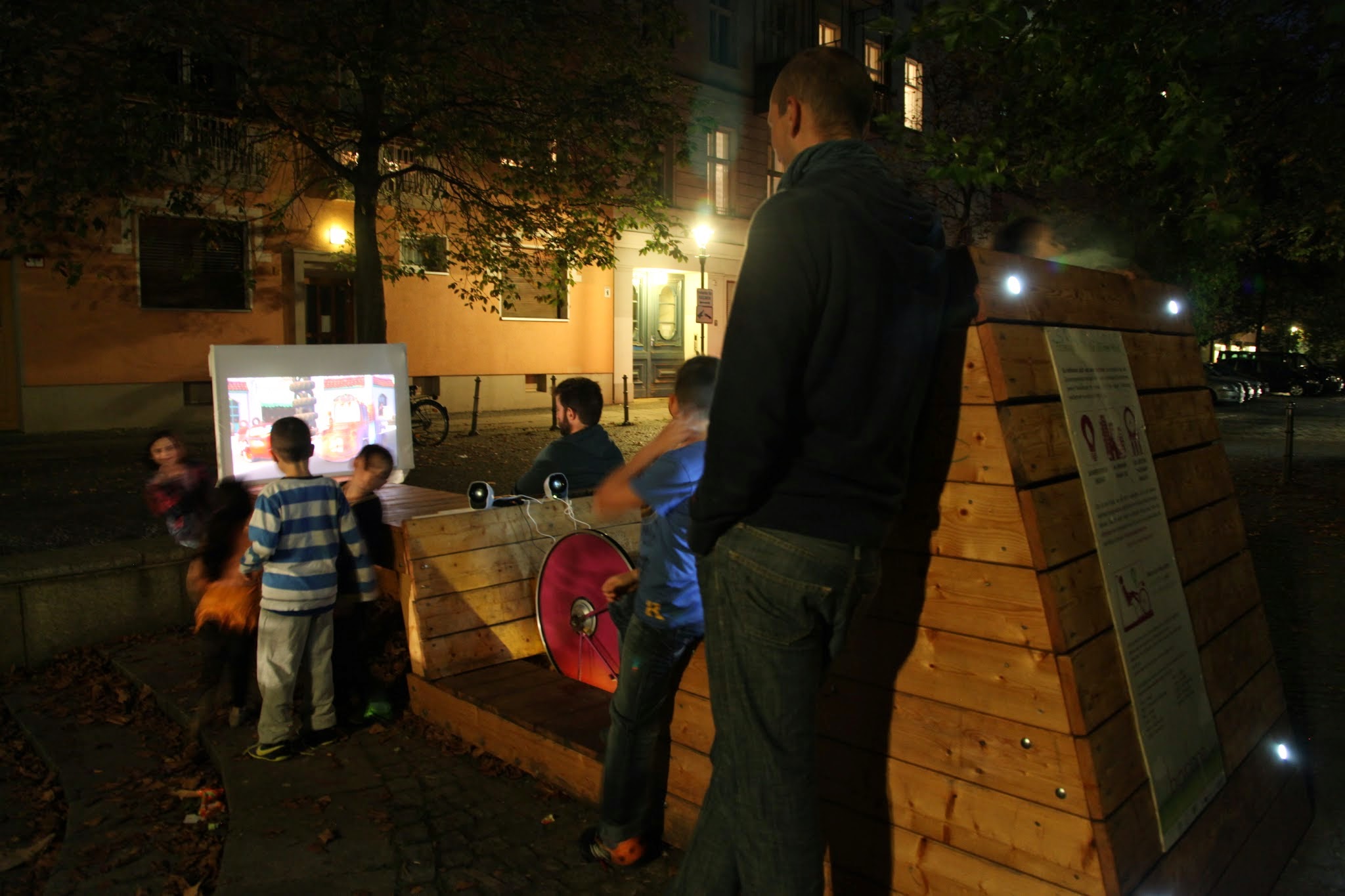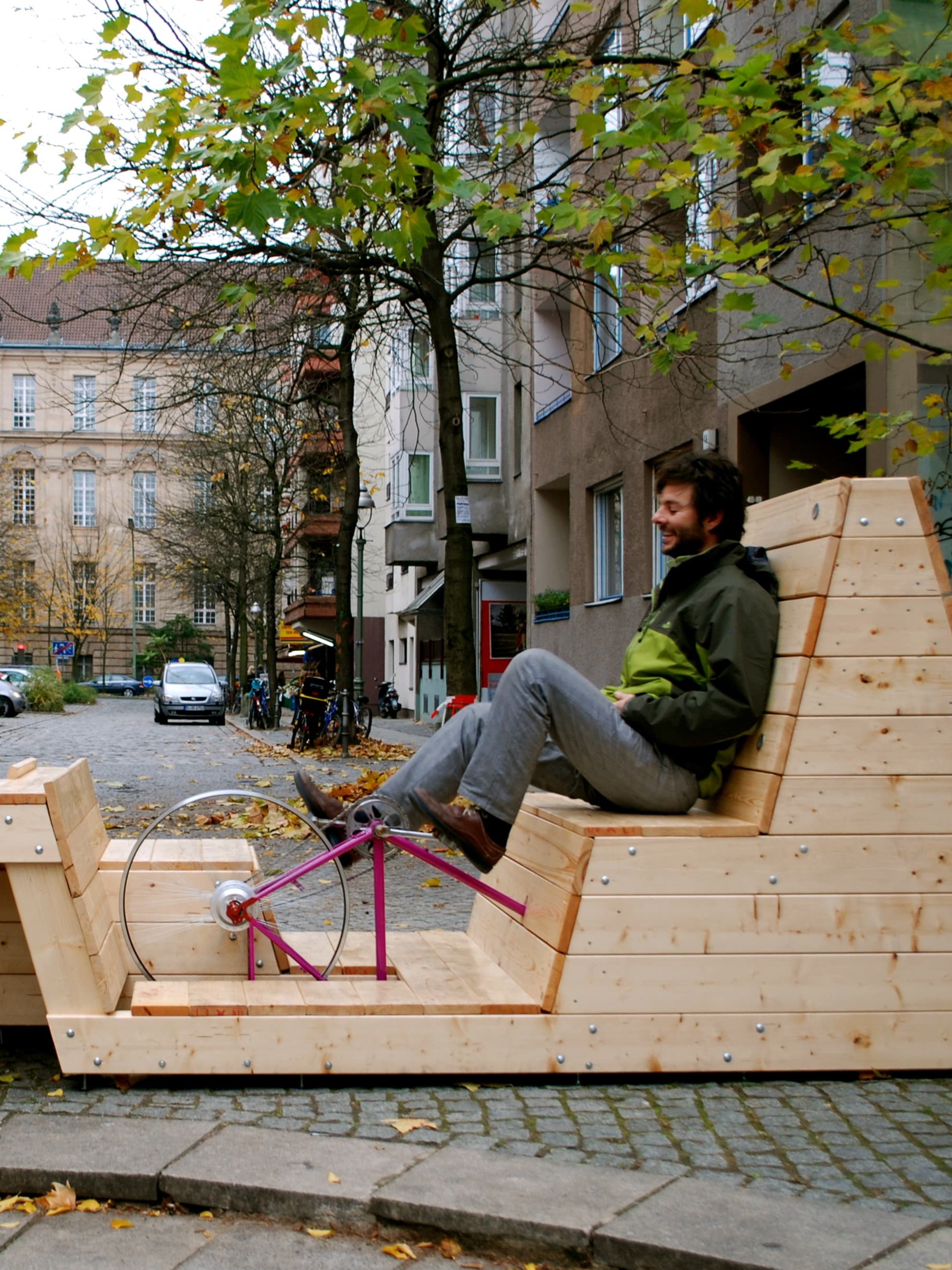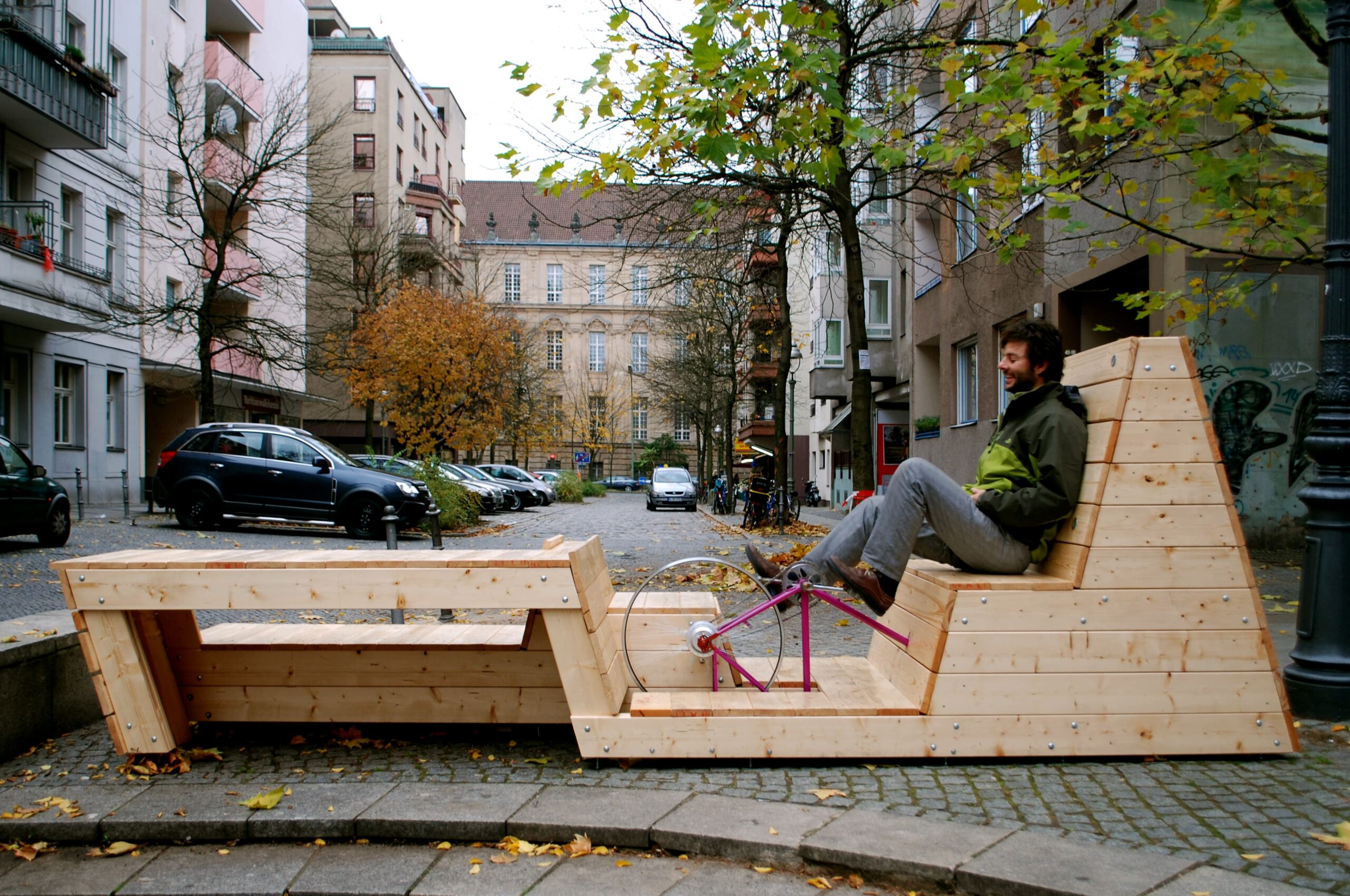
A new piece of furniture that generates energy for the city
The series of electrical installations called “Bicyclopes” was launched in March 2012. It is a participatory project in which users have the opportunity to be involved in the decision-making process and, in some cases, in the construction process. This involvement is what makes each “Bicyclope” unique and distinctive.
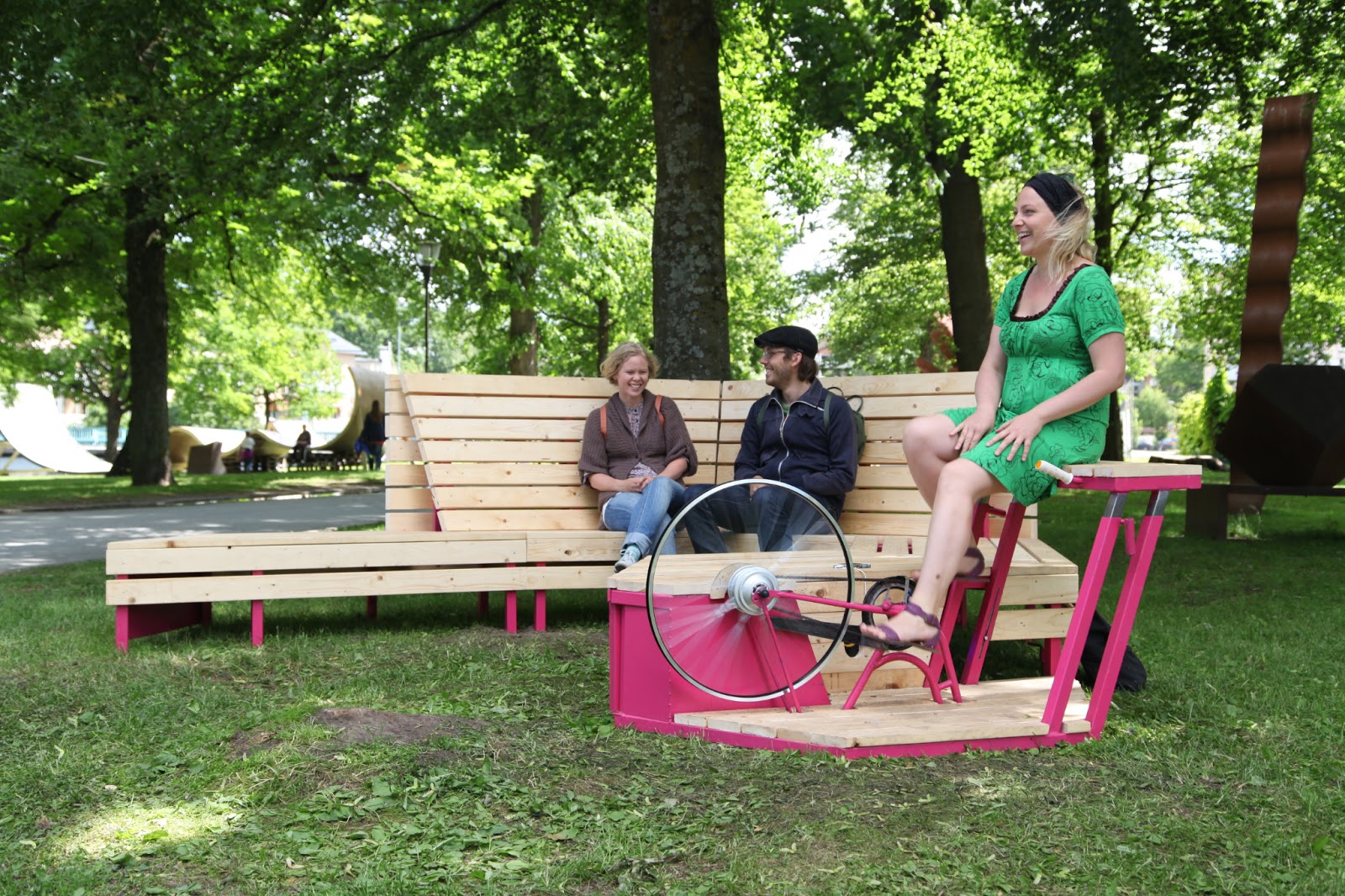
The opportunity to design one’s own living space strengthens each person’s motivation to maintain and take ownership of that space. Moreover, we believe that a sense of identification with and engagement in one’s environment stems from active participation in the decision-making process. For this reason, this project extends far beyond merely beautifying the streets with an electricity-generating installation. Instead, it aims for residents to design a prototype within a given framework, participate in part of the construction process, and use the resulting product for their own enjoyment or everyday needs.
Participants also decide how the generated energy is utilized: for example, powering the lights of a signaling system, playing music, activating a USB port, and more.
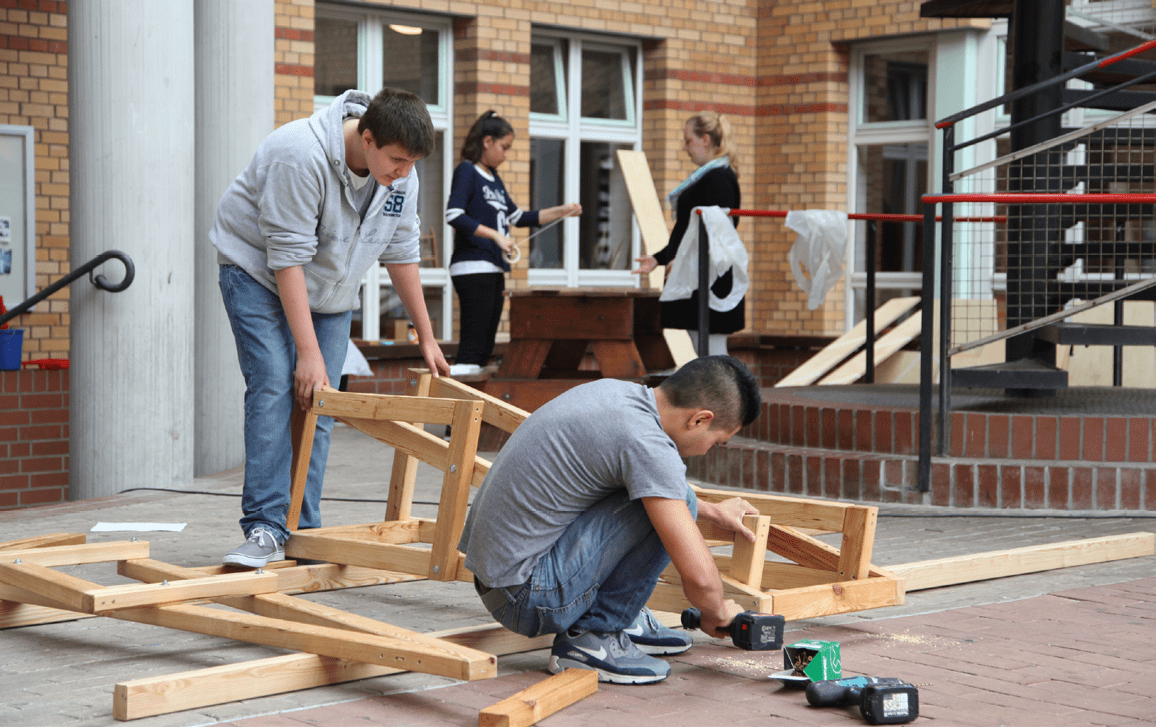
In addition, playful aspects such as self-generated energy and the effort required to produce it are central to the entire process. From this perspective, our proposal goes beyond simply creating an electricity-generating facility. We aim to provide an integrated system for the school that is grounded in participation, collaboration, mutual learning, environmental stewardship, and responsibility. In this way, the Bicyclopes operate on multiple levels:
Theoretical level: With Bicyclopes, we aim to spark an open and broader conversation about the use and design of public spaces. By making participatory theories accessible to the community, we seek to raise awareness about the vital role citizens play in shaping public discourse.
Physical level: At the end of the process, a functional electricity-generating installation for the city is created.
Social level: The project is built on a win-win relationship or horizontal collaboration between our professional team and the users. This dynamic allows each participant to learn through shared experiences and creative processes, fostering a “mutual learning process.”
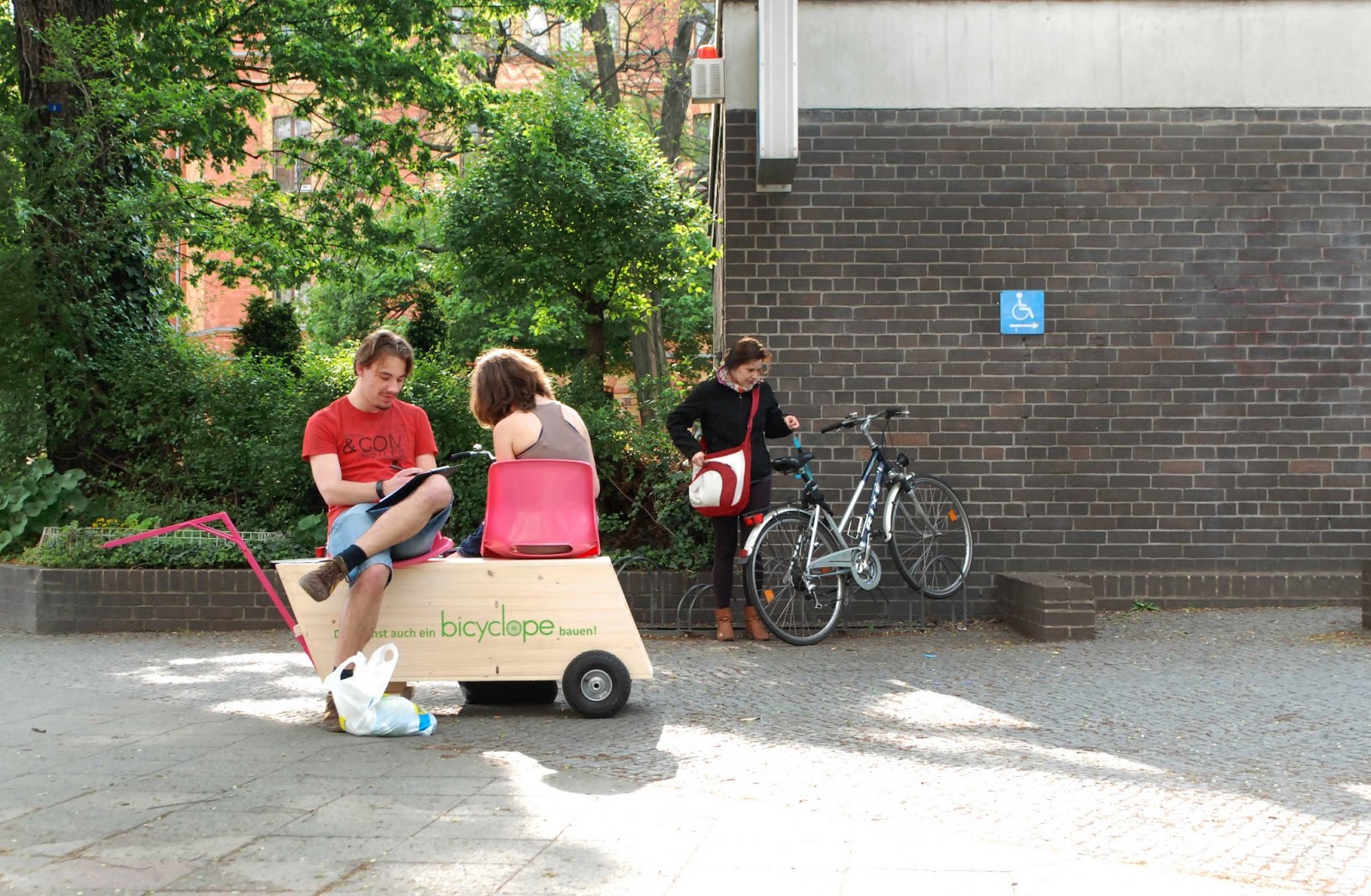
Bicyclopes has been featured in Berlin, Germany (Programm Soziale Stadt, 2012-2014, and Kultur macht stark, 2015) and in Örebro, Sweden (OpenArt, 2013), serving as a reference for a more playful and collaborative approach to city-making.
